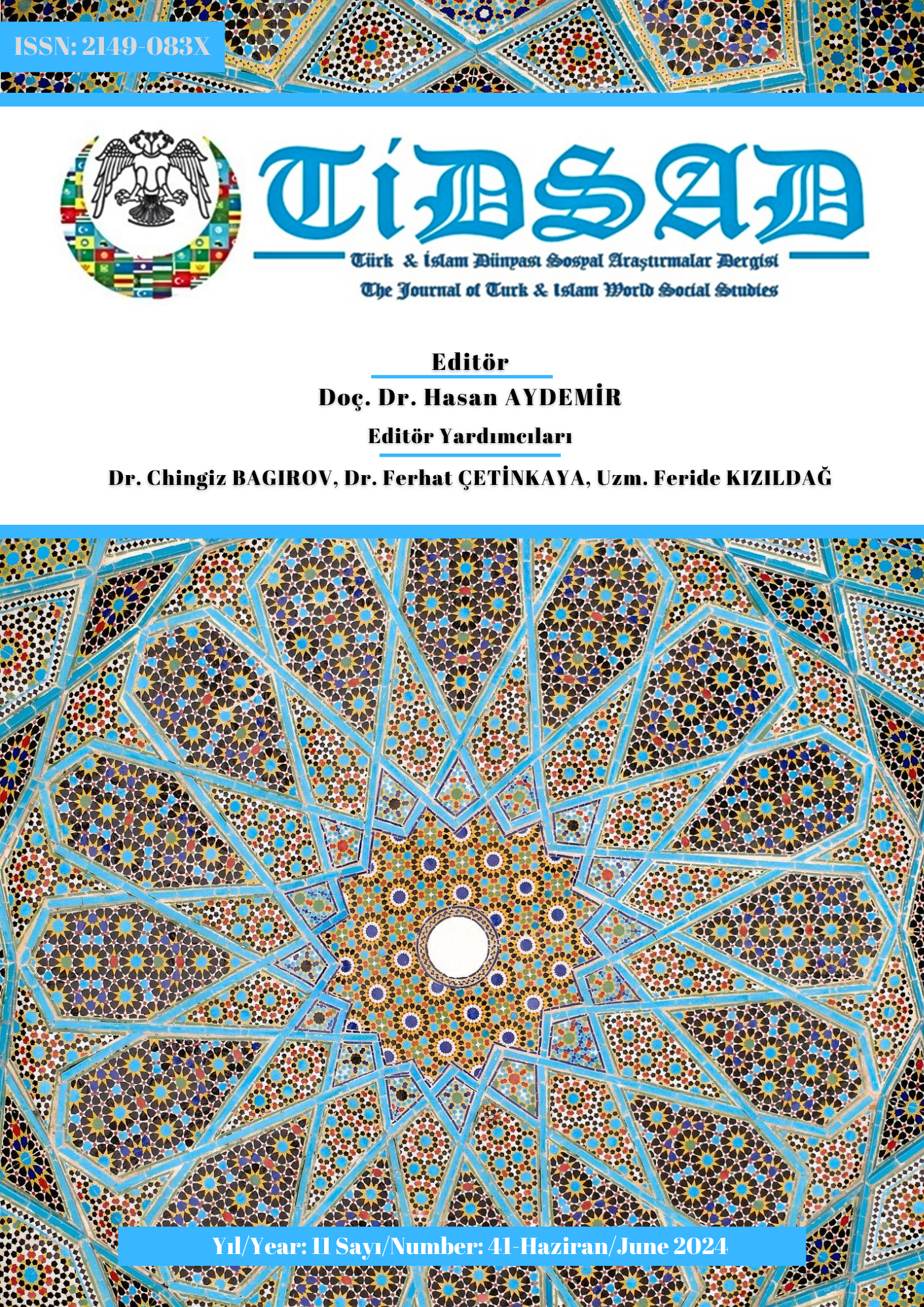İstanbul İlçe Belediyelerinde Sıfır Atık Projesinin Ekolojik Şehir Tasarımı Açısından Değerlendirilmesi
Author :
Abstract
Son on yılda küresel kentleşme önemli artış göstermektedir. 2025 yılına kadar Dünya nüfusunun %68’inin şehirlerde yaşayacağı tahmin edilmektedir. Bu durum, mega kentlerin çevresel etkilerini azaltmak için çevre yönetimi stratejilerini uygulanmasını gerektirmektedir. Sürdürülebilir kent planlaması, kentsel alanların ekonomik, sosyal ve çevresel açıdan dengeli bir şekilde geliştirilmesi ve yönetilmesidir. Birleşmiş Milletler Sürdürülebilir Kalkınma Hedefleri (SKH), yerel yönetimlerin bu hedefleri benimsemesi ve uygulamasıyla gerçekleşebilir. Hedeflerin başarısı, yerel yönetimlerin bu hedefleri yerel ihtiyaçlara uyarlayarak toplulukların sürdürülebilir kalkınma çabalarına katkıda bulunmasıyla sağlanır. Bu çalışmada 2017 yılında Türkiye'de başlatılan "Sıfır Atık Projesi" çerçevesinde İstanbul ilçe belediyelerinin 2023 yılı atık toplama verileri değerlendirilmiştir. Veriler, 39 ilçe belediyesinin yıllık faaliyet raporlarından toplanmış ve çeşitli atık türleri açısından analiz edilmiştir. Türkiye'de 2022 yılında toplam 109 milyon ton geri dönüştürülebilir atık oluşmuştur. Atıkların %86’sı atık işleme tesislerine gönderilmiştir. Belediyeler tarafından toplam 303 milyon ton atık toplanmıştır. Geri dönüşüm oranı 2017'de %13 iken, 2022'de %30’a yükselmiştir. İstanbul’da atık yönetimi ve geri kazanım süreçlerinde pandemi krizi, tüketim alışkanlıklarının değişmesi ve atık bertaraf tesislerinin sayısının artması gibi nedenlerle dalgalanmalar görülmektedir. Proje sayesinde İstanbul ilçe belediyelerinde atık yönetiminde önemli iyileştirmeler sağlanmış ve Sıfır Atık Projesi'nin çevresel sürdürülebilirlik açısından olumlu etkiler yarattığı görülmüştür. Çalışmada, atıkların çevresel sürdürülebilirlik çerçevesinde etkin yönetilmesi ve Sıfır Atık Projesi'nin genişletilmesi gerekliliği vurgulanmaktadır.
Keywords
Abstract
Global urbanisation has increased significantly in the last decade. By 2025, it is estimated that 68 per cent of the world's population will live in cities. This situation requires the implementation of environmental management strategies to reduce the environmental impacts of megacities. Sustainable urban planning is the development and management of urban areas in an economically, socially and environmentally balanced manner. The United Nations Sustainable Development Goals (SDGs) can be realised through the adoption and implementation of these goals by local governments. The success of the goals is ensured by local governments contributing to the sustainable development efforts of communities by adapting these goals to local needs. In this study, within the framework of the ‘Zero Waste Project’ launched in Turkey in 2017, the waste collection data of Istanbul district municipalities for 2023 were evaluated. The data were collected from the annual activity reports of 39 district municipalities and analysed in terms of various waste types. A total of 109 million tonnes of recyclable waste was generated in Turkey in 2022. 86% of the waste was sent to waste processing facilities. A total of 303 million tonnes of waste was collected by municipalities. Recycling rate increased from 13% in 2017 to 30% in 2022. There are fluctuations in waste management and recovery processes in Istanbul due to the pandemic crisis, changes in consumption habits and the increase in the number of waste disposal facilities. Thanks to the project, significant improvements have been achieved in waste management in Istanbul district municipalities and it has been observed that the Zero Waste Project has positive impacts in terms of environmental sustainability. In this study, it is emphasised that waste should be managed effectively within the framework of environmental sustainability and the Zero Waste Project should be expanded.





